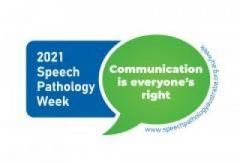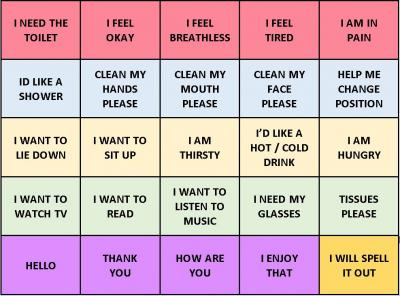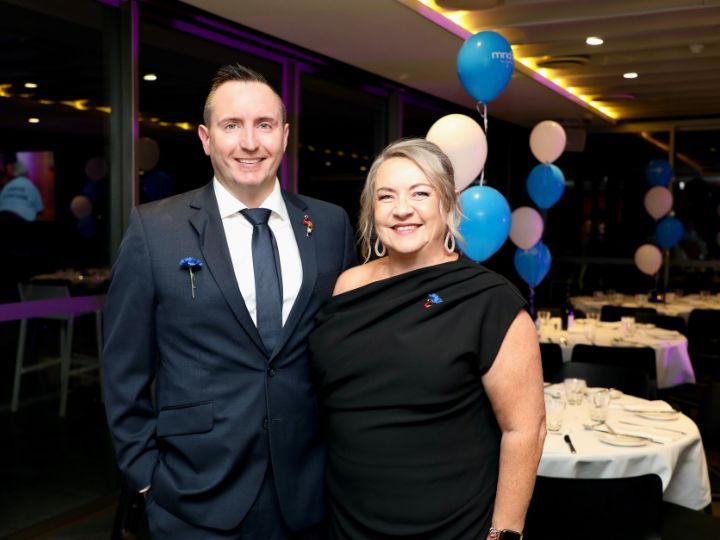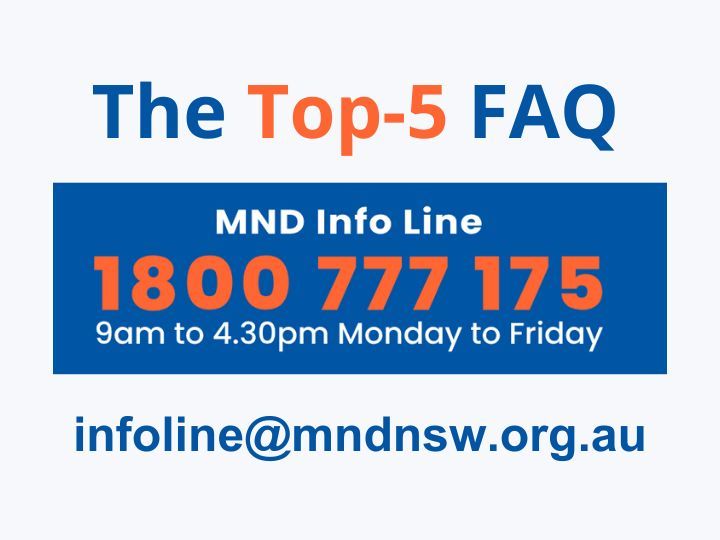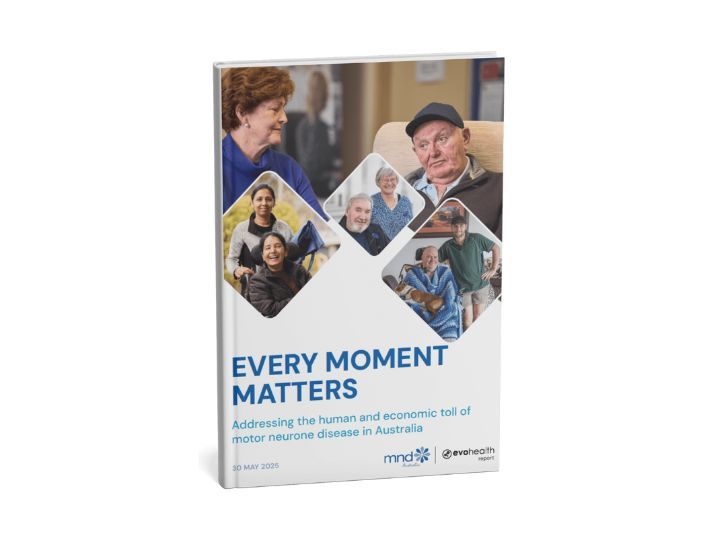The Australian Bureau of Statistics has established that 1.2 million Australians have a communication disability, and this includes people living with MND who experience difficulties with their speech.
This week is Speech Pathology Week and the theme is ‘Communication is everyone's right’.
Communication disabilities can be a "hidden disability" and a speech pathologist is often an integral part of the allied health team for people living with MND.
A speech pathologist can support with the management of speech and communication and can advise you about communication aids, devices and Augmentative and Alternative Communication (AAC) systems.
A speech pathologist can also provide guidance around swallowing, swallowing techniques, saliva management and food consistency.
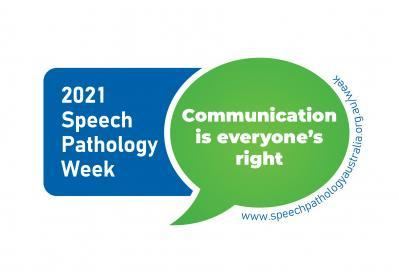
How to find a Speech Pathologist
Public services are sometimes available through hospitals, community health centres, MND Clinics and outreach. We recommend you discuss your options with accessing a speech pathologist with your current health practitioners, MND Advisor, Support Coordinator (NDIS) or Case Manager (My Aged Care).
Speech Pathology Australia have an online search tool here which lists current certified and practising members of Speech Pathology Australia (SPA). These are only the members who have chosen to have their details made public and may not be experienced supporting people with MND.
Publications
MND NSW has a range of publications available for people living with MND, their family and their service providers. Our publication 'Living with motor neurone disease: day-to-day for people with MND, their family and friends' has a section on Communication and MND, Eating Well and suggestions for symptom management. This publication is available to view free online or can be provided in hard copy, ask your MND Advisor or our Information Line for further details. We can also provide 'I have lost my speech but I can hear and understand you' business cards which you can request via our Info Line.
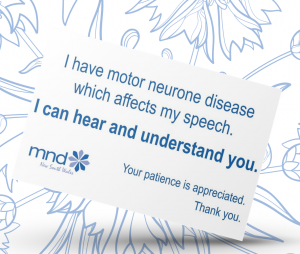
FlexEquip
You may be able to access assistive technology via our FlexEquip equipment program, this is a service we provide to people with MND and NDIS clients with a rapidly progressive neurological condition. Requests for FlexEquip support require a written referral from an appropriate health professional who has assessed your needs. To find out more about FlexEquip and our communication technology, please see our website here.
Communication apps
There are a wide range of apps available to support with communication, using your phone or tablet, and they vary in cost and accessibility. Your speech pathologist can advise which app may be most appropriate for your needs and also support with trialling a range of apps, some of which are available for loan via our FlexEquip program.
Quick access
Some people prefer to use a pen and paper, wipe board, communication charts or LCD eWriter to communicate as this can be a quicker way of getting your message across. Most stationary stores sell wipe boards and some also stock Boogie Boards, a form of LCD eWriter. MND NSW can provide laminated A4 or A5 size communication charts like the example shown below, please contact our Info Line to request copies.
Free downloadable AAC boards and links to other websites with other resources - https://eatspeakthink.com/free-low-tech-aac-for-adults/
